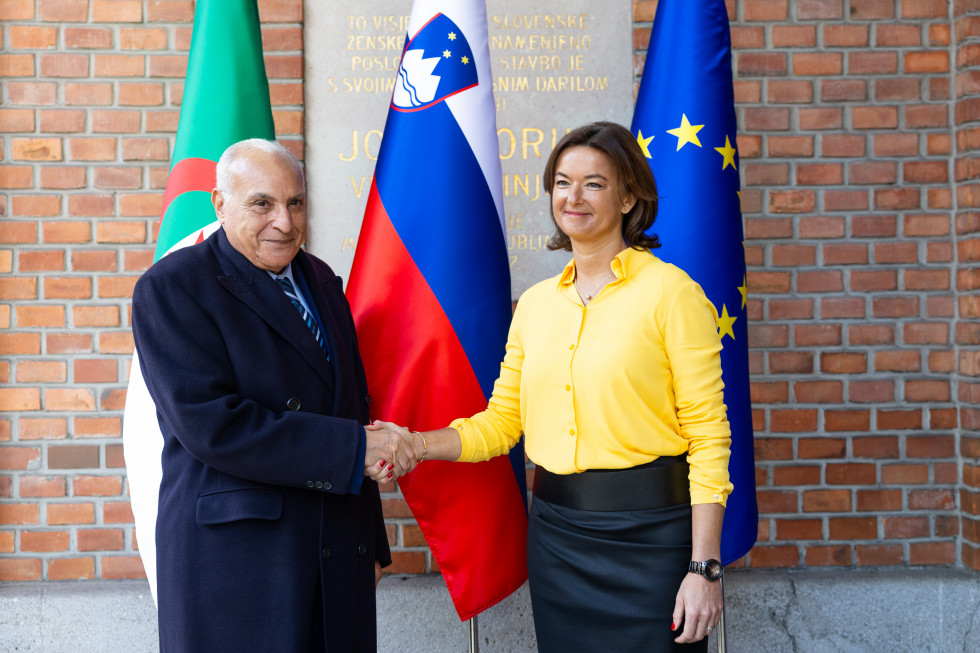Slovenia and Algeria strengthen bilateral cooperation and emphasise commitment to multilateralism

Minister Fajon shaking hands with Minister Attaf | Author Ministrstvo za zunanje in evropske zadeve
In her press statement, Minister Fajon underlined the positive cooperation between Slovenia and Algeria, which has grown over the years. This is also reflected in the fact that "both Slovenia and Algeria will soon be opening their embassies in Algiers and Ljubljana, respectively, which will undoubtedly further strengthen cooperation. Slovenia has already deployed a Chargé d'Affaires to Algiers in October, who has started the procedure for the opening of a Slovenian embassy."
Minister Attaf's visit to Slovenia is also linked to the strengthening of relations between the two countries in various areas. Within the framework of bilateral relations, the two ministers supported the strengthening of political and economic cooperation. "Algeria is Slovenia’s third most important economic partner in Africa. I look forward to the implementation of the economic cooperation agreement signed last year. There are still many opportunities to further develop cooperation in the fields of energy, AI, digitalisation, agriculture, etc.," said Minister Fajon. As far as economic cooperation is concerned, cooperation in the wood, paper and pharmaceutical industries should also be mentioned.
Slovenia and Algeria will become non-permanent members of the UN Security Council in 2024, with Algeria an important partner among African countries. The two ministers discussed the priorities for the two countries' membership of the UN Security Council and underlined the importance of effective multilateralism. "I am pleased that the meeting of the five foreign ministers of the newly elected members of the Security Council in New York in September 2023 has paved the way for constructive cooperation over the next two years," the Minister said in a press statement. She added that Slovenia's key priorities for the next two years would be environmental, food and energy security; the protection of civilians and the most vulnerable populations in conflict; and the empowerment of women in the security, political and economic spheres. Slovenia will also seek to put on the UN agenda the debate on Security Council reform and the effectiveness of peacekeeping operations, which are priority issues for African countries.
The two ministers also discussed the situation in the Middle East and the Sahel, expressing concern about civilian casualties in Palestine and the possible escalation of the conflict, and underlining the need for humanitarian access in Gaza. They agreed on the need for immediate ceasefire and the launch of a political process leading to long-term peace, both between Israel and Palestine and in the wider region. In this context, the Minister stressed that "Slovenia attaches the utmost importance to the protection of civilians and to preventing the conflict from becoming a regional one. We have neglected the Middle East peace process for the last 15 years and now we have the opportunity to take concrete steps towards a two-state solution by revitalising this process."
Minister Attaf also briefed Minister Fajon on developments in the Sahel, particularly in Niger, where Algeria, as a peace broker, is working to find a diplomatic and peaceful solution to the crisis following the coup d'état.
